Abstract
The need for self-care by retarded individuals in behaviors such as brushing teeth led to the development and evaluation of a comprehensive toothbrushing program that included a task analysis and training procedure specific to each component of the task analysis. Eight mentally retarded adolescents, in two groups, individually received acquisition training that included scheduled opportunities for independent performances, verbal instruction, modelling, demonstration, and physical assistance. The first group of four subjects received token plus social reinforcement; the second received only social reinforcement. All eight subjects showed improved toothbrushing behaviors when compared to baseline. Six of the eight subjects correctly performed all toothbrushing steps in two of three consecutive sessions. The study emphasizes the need for systematic program development and evaluation.
Full text
PDF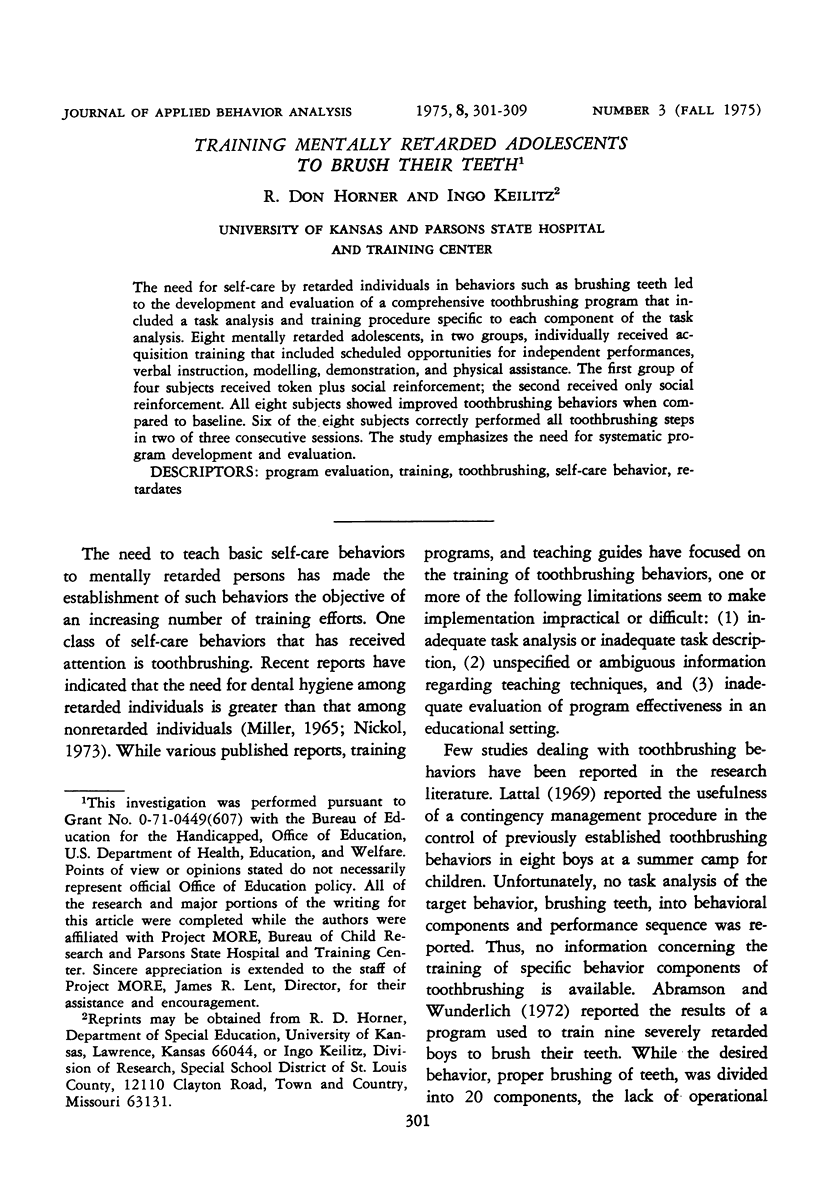
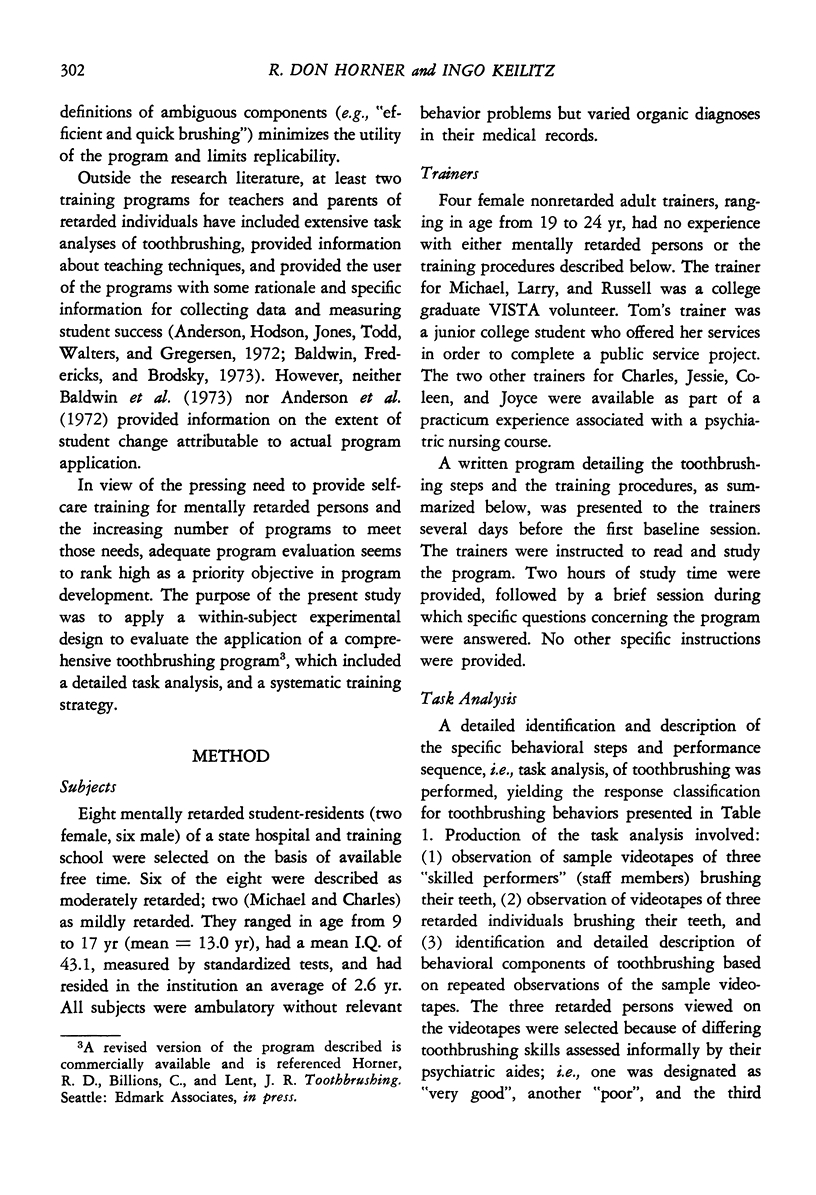
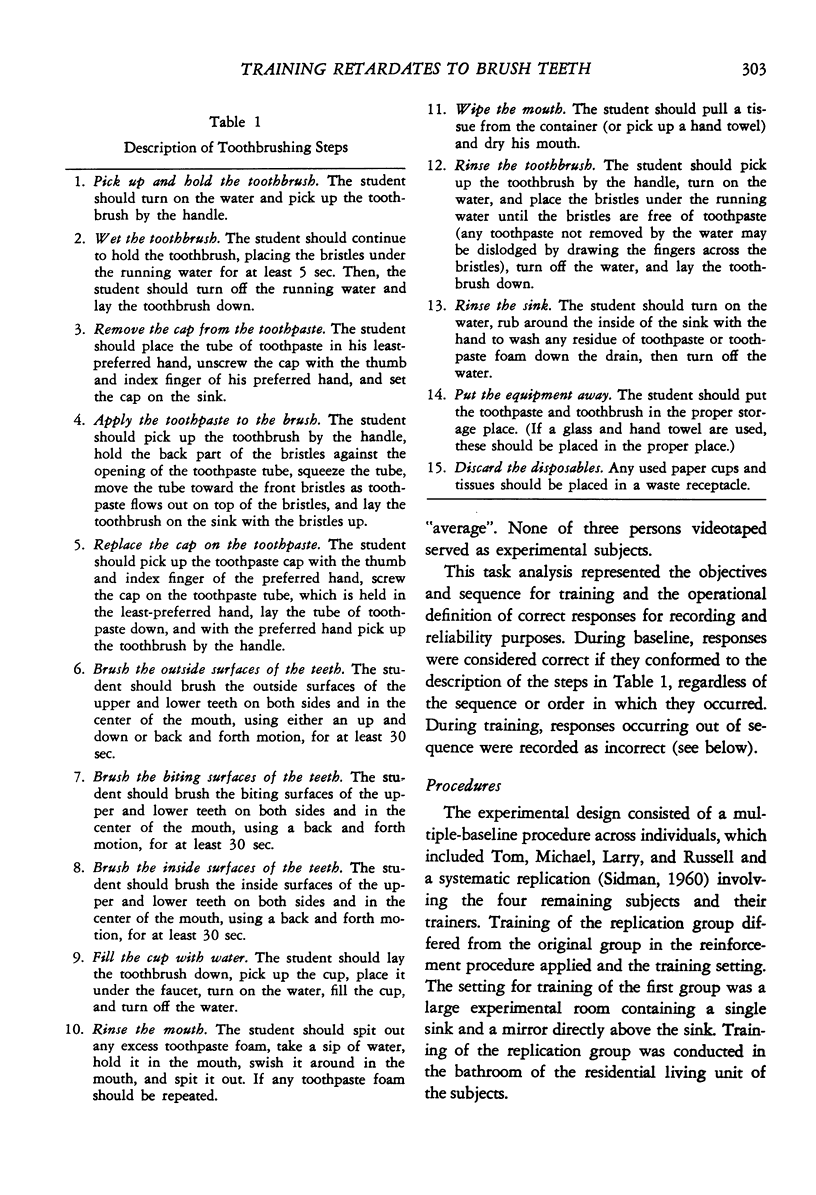
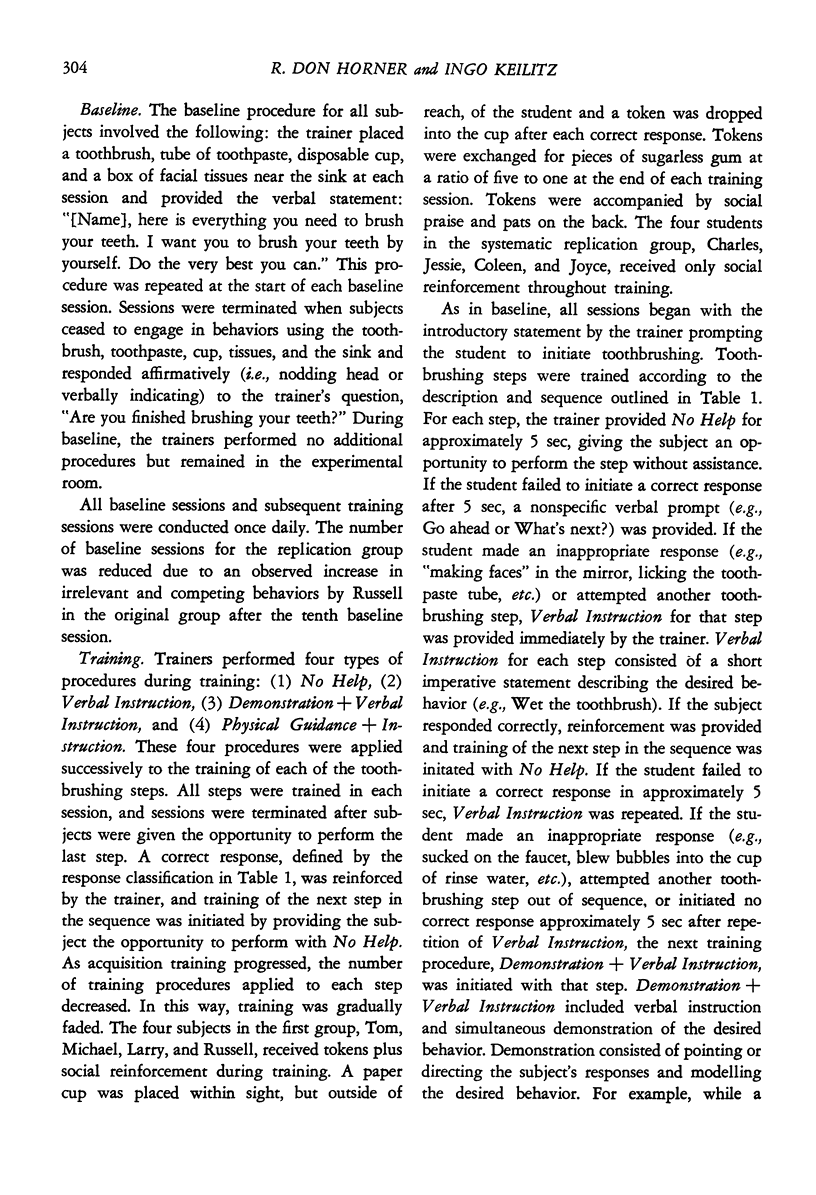
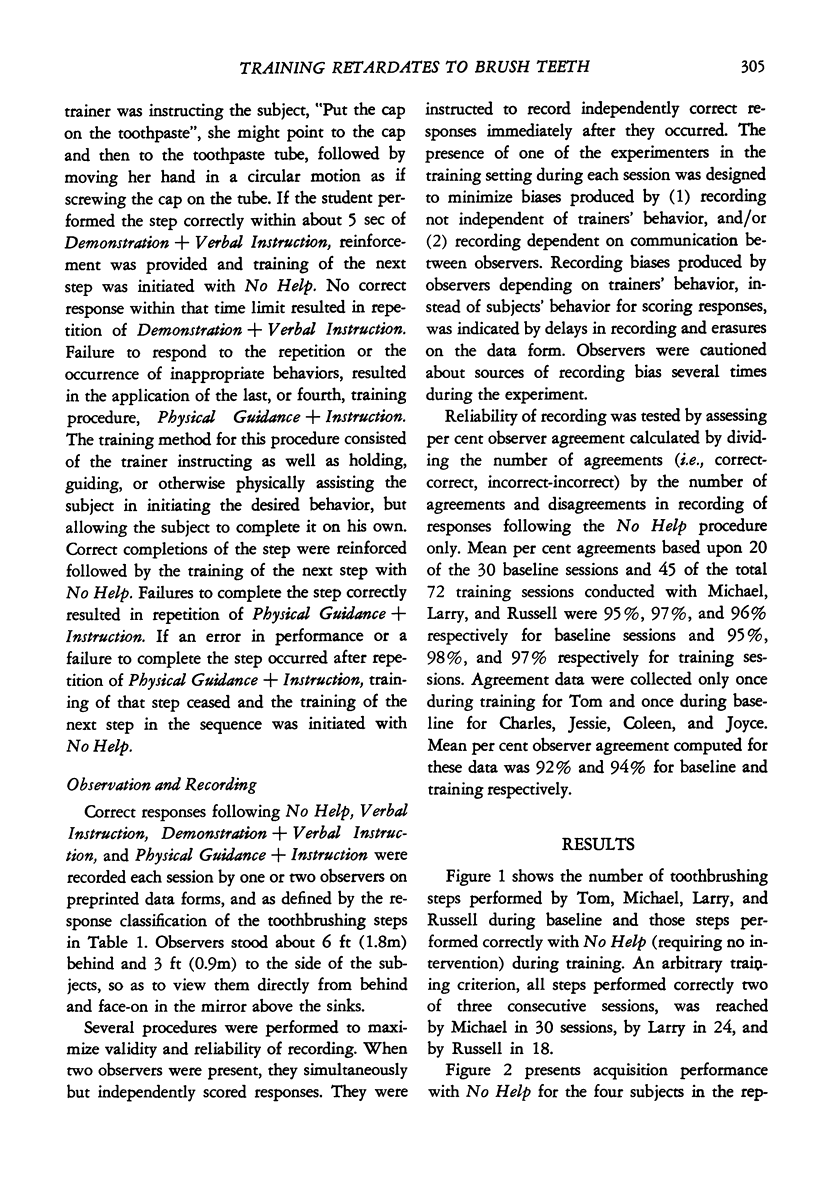
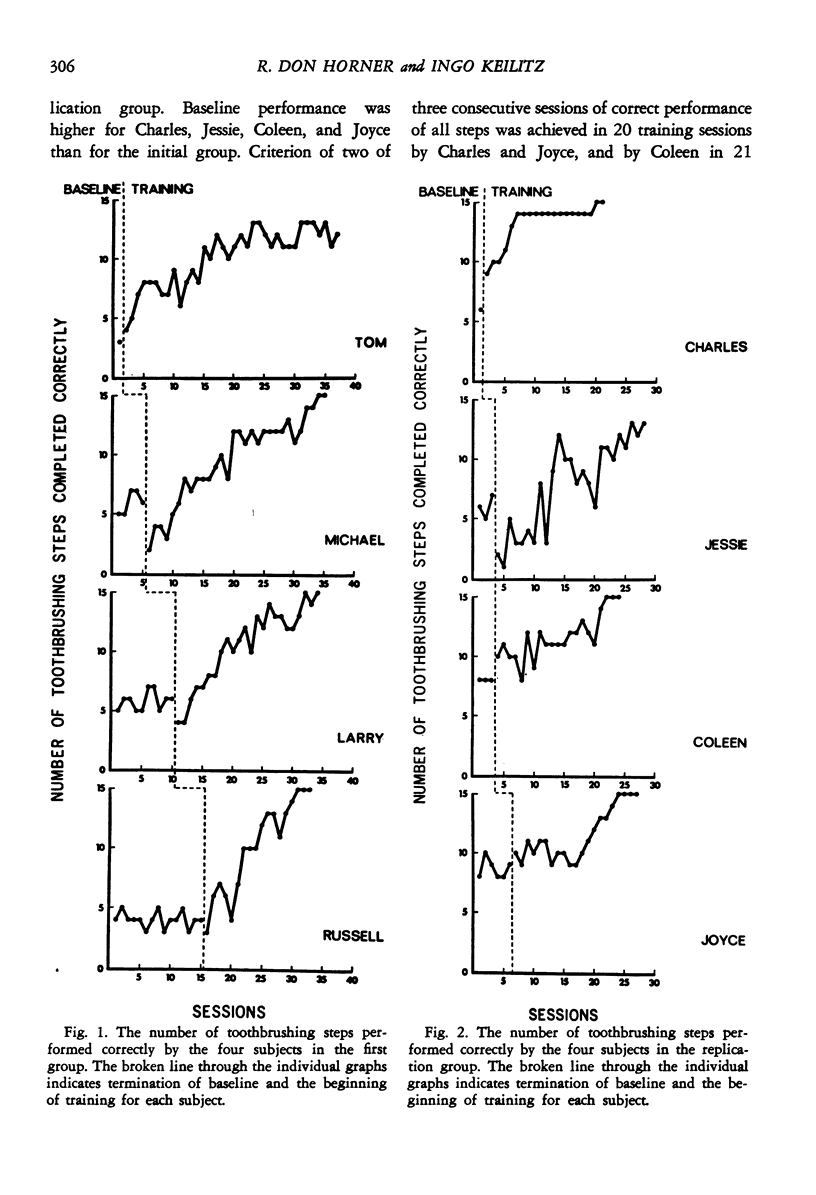
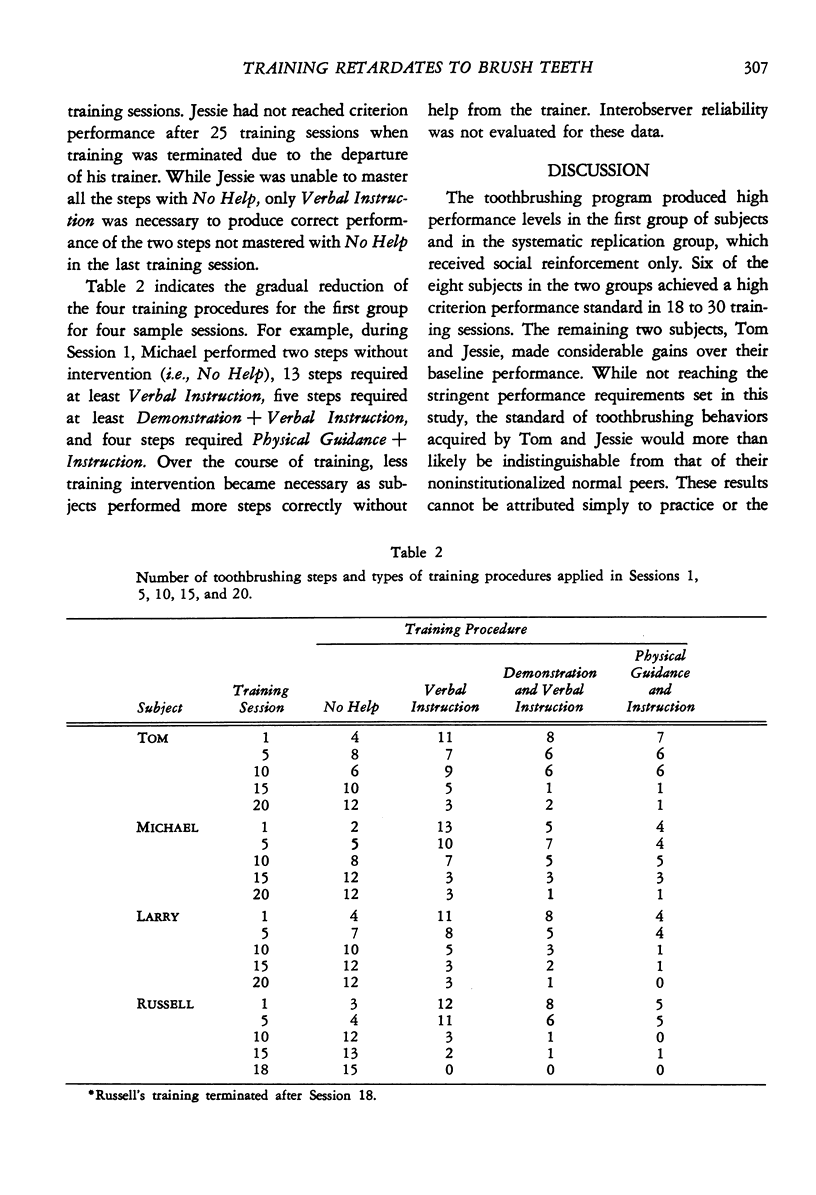
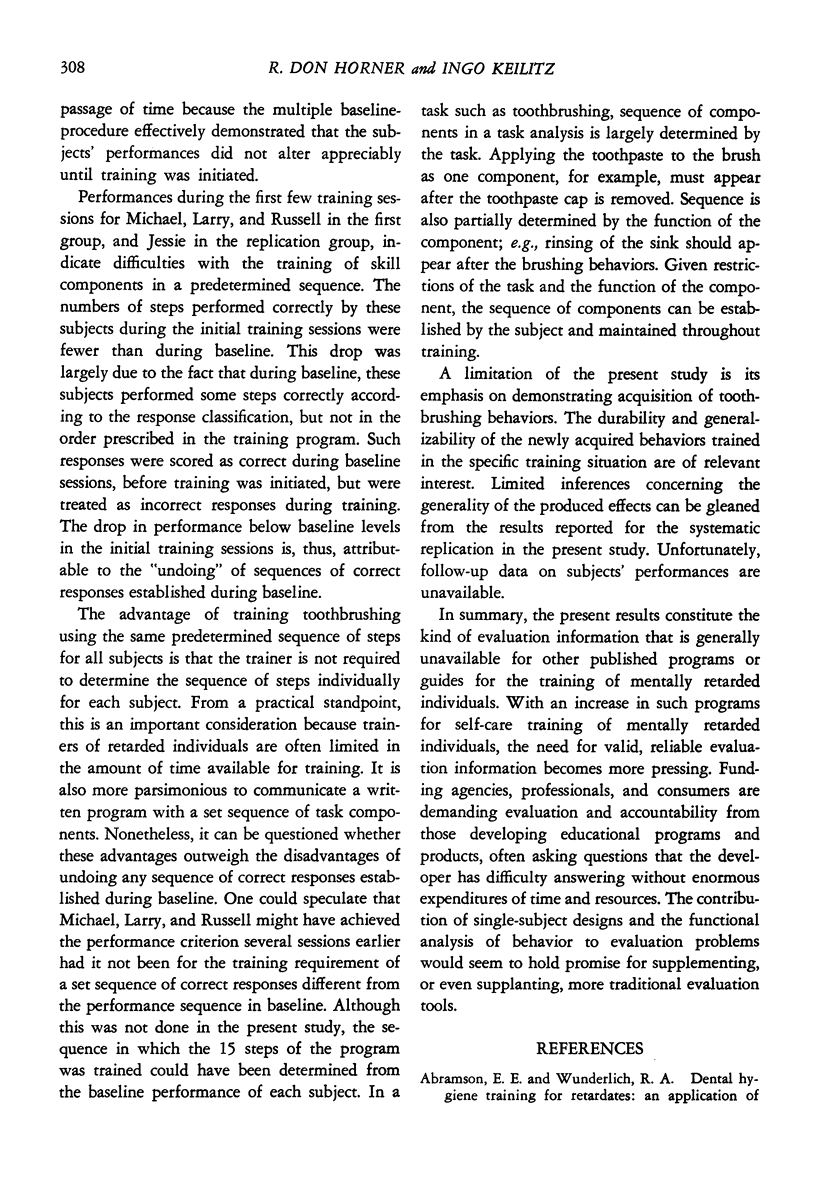
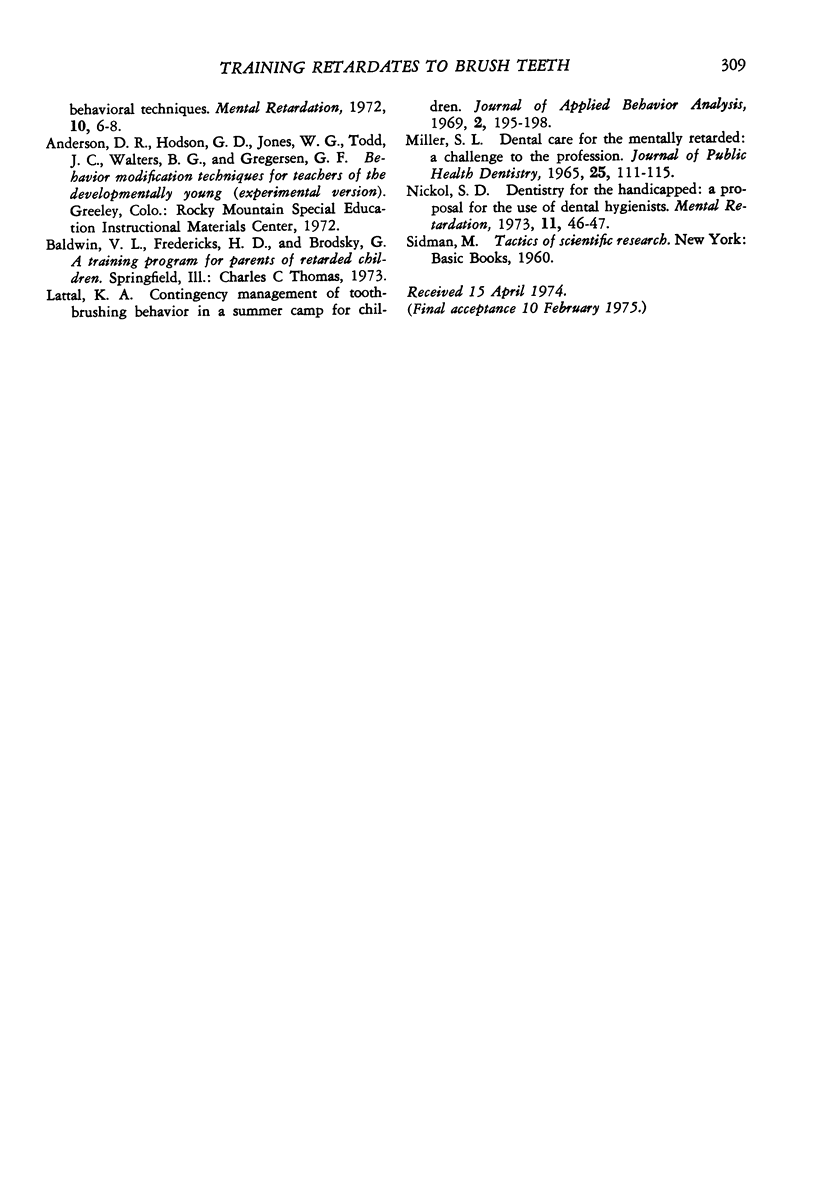
Selected References
These references are in PubMed. This may not be the complete list of references from this article.
- Abramson E. E., Wunderlich R. A. Dental hygiene training for retardates: an application of behavioral techniques. Ment Retard. 1972 Jun;10(3):6–8. [PubMed] [Google Scholar]
- Lattal K. A. Contingency management of toothbrushing behavior in a summer camp for children. J Appl Behav Anal. 1969 Fall;2(3):195–198. doi: 10.1901/jaba.1969.2-195. [DOI] [PMC free article] [PubMed] [Google Scholar]
- Miller S. L. Dental care for the mentally retarded; a challenge to the profession. J Public Health Dent. 1965 Summer;25(3):111–115. doi: 10.1111/j.1752-7325.1965.tb00476.x. [DOI] [PubMed] [Google Scholar]
- Nickol S. D. Dentistry for the handicapped: a proposal for the use of dental hygienists. Ment Retard. 1973 Feb;11(1):46–47. [PubMed] [Google Scholar]


